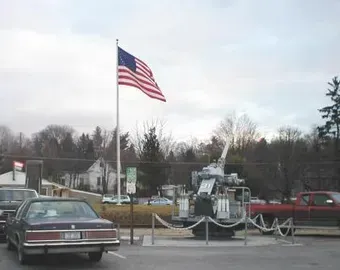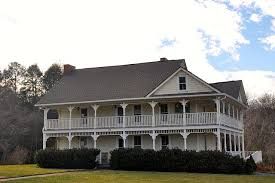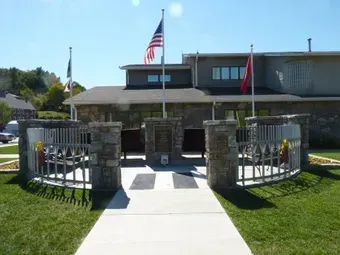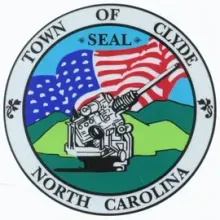555-555-5555
mymail@mailservice.com



About Clyde
Clyde Township was formed in 1877 from Pigeon, Beaverdam and Waynesville. At first it was called Lower Pigeon. Later the township was named Clyde after the little town that had grown up on the banks of the Pigeon River. We are not exactly sure how Clyde got its name but here are the tales we have heard…
1. A man who lived on the Clyde River in Scotland came to North Carolina to live. He thought the area reminded him of home and named the area Clyde.
2. When the railroad was under construction, the foreman’s name was Clyde. All the workers called his name so much the town was named Clyde.
3. The iron for the old bridge across the Pigeon River came from the Clyde Ironworks in Ohio. The name Clyde was stamped all over the steel and the town was named Clyde. The bridge was washed away in a flood in the earlier years.
The first settlers of Clyde engaged in agricultural pursuits, in merchandising, and in raising live stock. Many of the early settlers tilled the soils and raised cattle.
In 1883, the first train pulled into what is now the Town of Clyde. At the time this was only a stopping place for the train with hardly a dwelling house in sight. A gentleman by the name of Mr. J.M. Shook gave the lot upon which the depot was built, and in the year of 1889 the Town of Clyde was incorporated. The first officers of the town were H.N. Wells, Mayor; B.B. Jones, J. Wiley Shook, and H.L. Morgan, Commissioners. In 1890 there were 90 people living in Clyde and in 1900 there were 244. In early nineteen hundred there were several businesses: a flour mill, several boarding schools, the Haywood Institute, and the Baptist Associational School. The public schools for the area were also located here. The town was noted as a health resort, and many people from the southern and western states came yearly here to spend the summer. A generation ago, Clyde was the major livestock shopping point west of Asheville. The old timers can remember when the streets of the town were filled with livestock when farmers from surrounding areas brought their livestock to the town to ship them out on railroad cars. The old livestock yard stood for several years not far from the center of town. During the days when the livestock trade flourished, the town sported two hotels, and two livery stables. One of the hotels, the Drummer’s Inn, was razed in the late forties to make way for the construction of the four lane, US 19-23, through the center of town. The other hotel, the old Yankee Hipps hotel, is now operated as Skyland camp for Girls. So prosperous was the town a generation ago that the old bank of Clyde weathered the big depression and paid 100 percent after bank closings ordered by the president.
The town limits were a perfect circle with the center of town being the knot hole in the depot door. Since the knot hole long ago disappeared with the depot, the center of town is located near where the 50 mm anti-aircraft gun is located on the town square. This gun was acquired due to the efforts of David Brown. Now a memorial which is dedicated to the memory of the Clyde Township veterans who gave their lives during World War I and II, Korean Conflict, and the Vietnam War. This memorial has become a part of Clyde and now bears its picture on the town seal.
Clyde is also the home of the famous “Shook-Smathers Museum”, one of the oldest buildings still standing in Haywood County. It was built around 1795 by Jacob Shook for his son Peter. This house is known and associated with the founding of Methodism in Haywood County. Also well-known for preaching by Bishop Francis Asbury, the first Methodist Bishop consecrated in America. In later years the attic of the home was converted into a chapel where other Methodist missionaries preached.
Today the town of Clyde has a population of 1368. We are a bedroom community with residents living in Clyde and working elsewhere. We have a close-knit community with a wide range of ages and backgrounds. The Town of Clyde provides police protection, water and sewer service, garbage collection, street lighting and maintenance. We provide for junk and brush collection to our residents also. The high school located in our town is an alternative educational facility. The Town of Clyde is in a floodplain area with a large portion of our residential area in the floodway and 100-year floodplain. To date we are still in recovery phases following the floods of 2004.
The town municipal building is located at 8437 Carolina Blvd. This building houses the townhall, police department and conference room.
The town’s current tax rate for fiscal year 2024/2025 is .43 cents per $100-dollar valuation. The town continues to strive to keep the rate as low as possible because we have elderly and retired residents living on fixed incomes.
The Town of Clyde is governed by a mayor and four-member board of aldermen. They are elected for four-year terms on a staggered basis. This system always provides for veteran officials and makes the transition much easier and assures that matters already on the table for discussion are finished. Elected official is not a job to be taken lightly. It takes dedication, responsibility and professionalism always. We must recognize that the chief function of local government is to serve the people.
How we are perceived by the people of our community depends on the treatment of our residents by the employees we hire to run the town daily. They keep the line of communication between public officials and the public open. To us here in Clyde, “open communication” is our greatest asset.
Town Hall: 828-627-2566
Emergency: 828-648-2376
PO Box 386
Clyde, NC 28721
Normal Operating Hours
M-F 9-12 and 1-5
Sheriff's Office: 828-452-6666
Emergency: 911
Town of Clyde Board
Jim Trantham, Mayor
Dann Jesse, Mayor Pro Tem
Frank Lay II, Alderman
Diane Fore, Alderwoman
Amy Russell, Alderwoman


